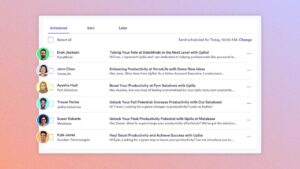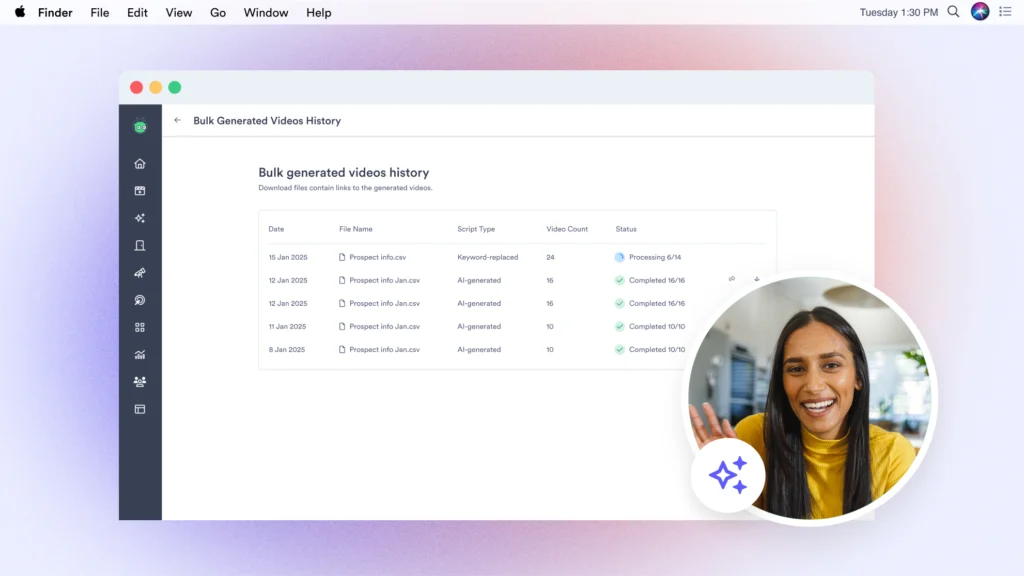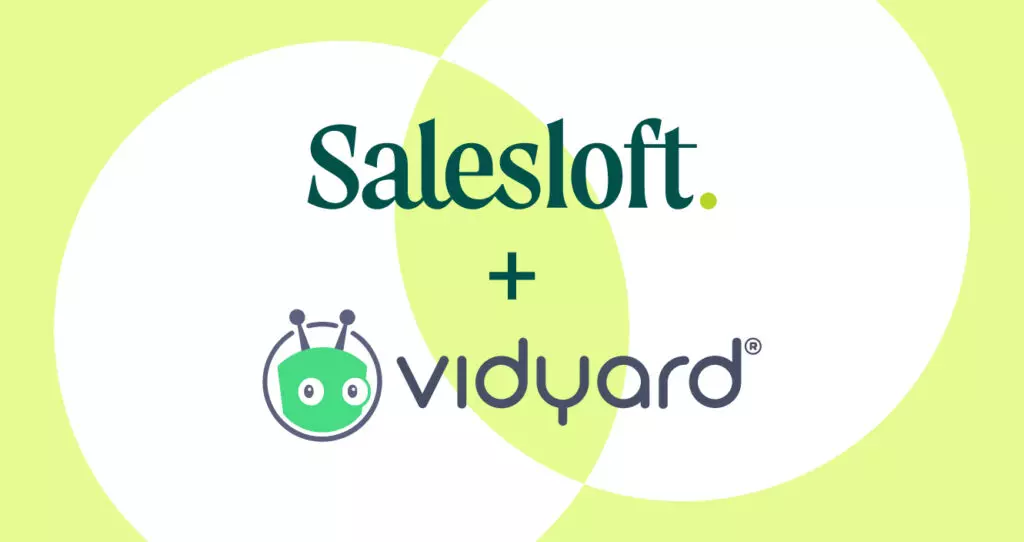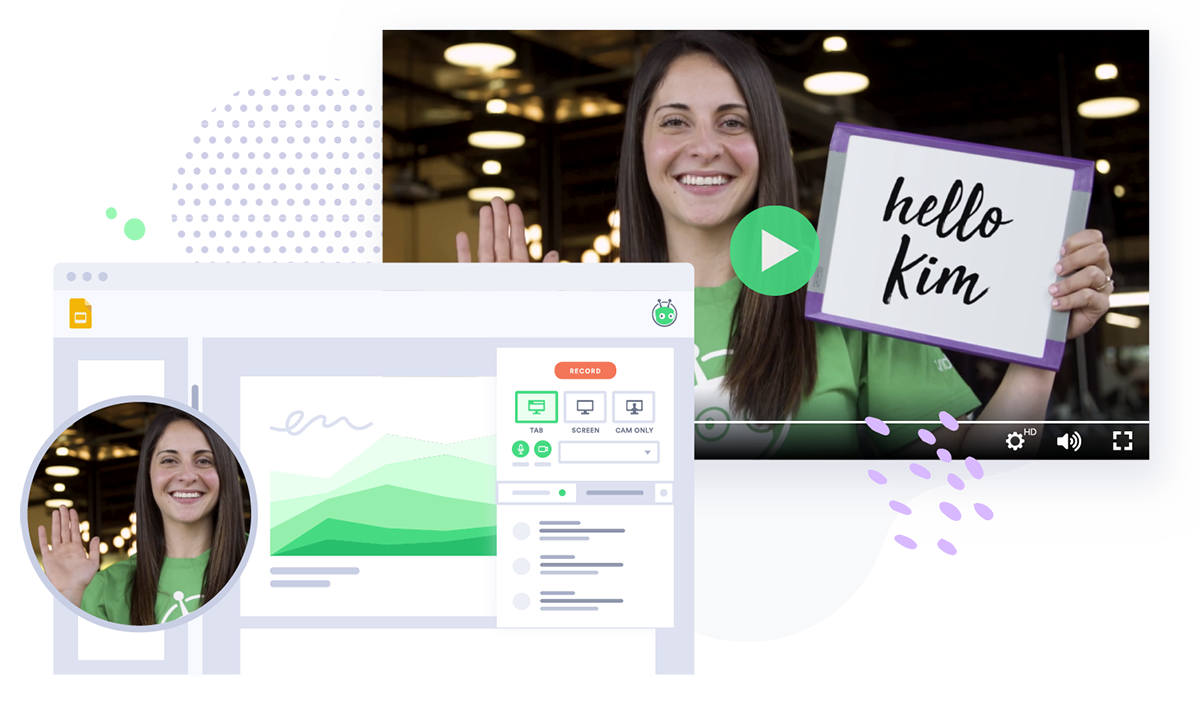Your Guide to AI in Sales: Use Cases, Ramifications, and Ways to Get Started
July 22, 2024·10 min read
AI in sales is inevitable. To succeed, sellers must embrace AI, prepare for its effects, and leverage it to free themselves from monotony, fostering more human connections.
Did an elementary school teacher ever tell you you needed to learn long division because “you won’t always have a calculator in your pocket?” Little did they know how ubiquitous smartphones would become.
Today, AI in sales is the calculator in math class. It’s expanded rapidly throughout the sales process in ways that you need to be ready for if you don’t want to get left behind.
I get it. Adopting new tech can be tough. It’s not as big of a step as you think—in fact, the sales tools you use daily are likely already using AI, so you may already be using it in your regular workflows, even if you don’t realize it.
Getting significant efficiency gains is just a matter of bringing AI from the background of your sales tools to the foreground of your work. And with some practice, AI in B2B sales can become your new email-, LinkedIn-message- and video-script-generating BFF.
In this guide, I’ll cover everything you need to know about using artificial intelligence in sales, from standard terms to AI use cases to tips for adoption. Let’s dig in.
- Contents
- What’s the Difference Between AI, LLMs, and ChatGPT?
- Why Use AI in Sales?
- 5 Key Impacts of Using AI in Sales—A Nuanced Take
- Will AI Replace Salespeople?
- 5 Easy Ways to Start Using AI in Sales
- How Will AI Affect Sales Management?
- How to Use AI in Sales: 9 Top Use Cases
- Final Thoughts: The Future of AI in Sales
What’s the Difference Between AI, LLMs, and ChatGPT?
The words “AI,” “generative AI,” “ChatGPT,” and “large language model” are not actually synonymous—even though folks sometimes use them interchangeably. Let’s break them down.
Type of AI | How it Works |
|---|---|
| Artificial Intelligence (AI) | Computer systems capable of performing tasks that usually require human intelligence, such as learning, reasoning, and problem-solving. AI development began in the 1950s, with early research focusing on rule-based approaches—aka solving math formulas the way a human would. Machine learning (ML) is a form of AI. |
| Generative AI | An AI technique that “learns” from datasets and can be prompted to create new content—such as text, images, video, and code—that resembles but doesn’t precisely replicate the data it was trained on and is often powered by an LLM. |
| Large Language Model (LLM) | A specialized type of generative AI consisting of a neural network with specific parameters trained on vast amounts of text and capable of creating new text. (At the most superficial level, it uses math to predict the next word.) |
| GPT | “Generative pre-trained transformer,” the name of a series of LLMs created by OpenAI. The most current version is GPT-4, which ChatGPT is built on top of. |
| ChatGPT | A chatbot, built as a layer on top of OpenAI’s GPT-4, that can respond to prompts and conversationally interact with humans. (Check out our Really, Ridiculously Good Guide to ChatGPT). |
Why Use AI in Sales?
Imagine a world without the telephone or the Internet. To do your job tomorrow, you must print out your contact list and drive around town in your Buick, knocking on doors. How much slower do you think you’d be as a salesperson?
AI will make the way we sell today feel just as inhibited as selling without the telephone. Today, written language tasks take up more than half of total work time, which can be easily made more efficient by using automation and generative AI for sales to do it for you.
Gartner predicts that:
- By 2025, up to 30% of outbound messages will be created by AI
- By 2028, as much as 60% of selling work will be done through AI-powered conversational user interfaces
- Teams who use AI like a teammate for sales reps (instead of a tool or replacement) will see the biggest impacts on deals and productivity
Artificial intelligence for sales will eliminate a whole class of activities and activity logging used to drive salespeople up the wall. Learning to use AI means saving time, staying competitive, and future-proofing your skills.
5 Key Impacts of Using AI in Sales—A Nuanced Take
I believe there are five key ways in which AI brings new value to the sales process, as explained below.
And while the majority of these changes are positive, as with all new technologies, there will be unintended consequences. It’s vital to get ahead of these and potentially mitigate them. You’ll thrive in this new AI era by understanding what’s coming and preparing for whatever AI might bring, both the positive and the potential negative.
Impact #1: Greater Efficiency
Benefits for Sales Teams
AI can automate repetitive tasks like prospecting and emailing, allowing sales professionals to be strategic. More time can be spent on high-value activities. Discovery calls become validation calls.
Potential Repercussions
Automation almost certainly will reduce demand for some sales roles, particularly entry-level ones focusing on repetitive tasks. Low-value activities will be eliminated.
Impact #2: Improved Decision-Making
Benefits for Sales Teams
AI analytics can help identify trends, predict customer behavior, and optimize pricing strategies. Aka, no more pitching the wrong package or long, drawn-out negotiations.
Potential Repercussions
The increased use of AI can raise concerns about data privacy and security. For example, when you’re using AI for sales prospecting, will your prospects be creeped out if your AI tool knows too much about them?
Impact #3: Personalized Communication
Benefits for Sales Teams
AI can tailor messaging and content to individual prospects, increasing engagement and conversions. It’s all that research you do on social, except taken care of by AI sales automation almost instantly.
Potential Repercussions
Sales professionals may start over-relying on technology. This can lead to less creativity in sales outreach, and the loss of the critical human touch that’s been shown to be so effective at getting attention and closing deals.
Impact #4: Better Lead Prioritization
Benefits for Sales Teams
AI can analyze data to score and prioritize leads, ensuring sales teams focus on high-value prospects, not just better scores. These are genuinely insightful tips for prioritizing your day like a seasoned coach.
Potential Repercussions
Implementing AI technologies can be complex and costly, especially for smaller businesses. And with new AI products cropping up on the regular, it’s challenging to keep up.
Impact #5: Faster Sales Cycles
Benefits for Sales Teams
AI-powered tools can streamline the sales process, helping you close deals faster and reduce cycle times. Imagine having the call, then the proposal is done by the time you get off.
Bad salespeople will still be bad salespeople, and AI won’t make them better—just more efficient at being bad.
Potential Repercussions
AI-driven decision-making can introduce biases or unfair practices, leading to ethical dilemmas or legal challenges.
Procurement teams are also leveraging AI to understand you, the seller. They might have insight into your margins and what your other customers paid, potentially adding more objections to the deal.
Will AI Replace Salespeople?
If AI can write, call, and produce video scripts—what’s your place in all this? Are you even still necessary to the sales process?
The short answer is yes. The long answer: It’s complicated.
Here’s the hard truth: AI can create some reshuffling in sales teams, but it won’t be quite as dark or dystopian as you might fear. The best use of AI is to augment the efforts of real people, not replace them. Unlike in the movies, your AI assistant isn’t going to fire you and take your job.
That said, AI tools can reduce the need for many tasks salespeople perform today. The good news? They’ll be the repetitive and labor-intensive ones. Think data entry, cold calling, cold emailing, and, gasp, updating your sales pipeline.
This may mean that entry-level BDR or SDR roles gradually start to disappear, or they’ll change significantly since these roles primarily consist of calling and emailing. While this change may be difficult for some to navigate, it will ultimately result in better outcomes for both people and business, including greater efficiency, fewer monotonous tasks, and more time for human sales engagement.
Paradoxically, by engaging AI, salespeople will have more time to be human. This human element will become increasingly valuable, because delegating that to AI just isn’t possible. What would you do differently if freed from all monotonous activities?
If you’re concerned about your role, now’s a great time to start upskilling. Below, I’ll share some practical tips for AI adoption in your workflows—and help future-proof yourself.
5 Easy Ways to Start Using AI in Sales
#1: Make AI Your Sales Writing Assistant
Are you struggling with a great subject line or LinkedIn message? This is a great use case for generative AI for sales. Just let it do the brainstorming for you.
Make an OpenAI account and ask ChatGPT to create a few iterations of the subject line or message. Remember to be specific about what you want, and provide as much context as you can.
If you need a little help thinking up prompts that work, check out our guide on writing AI sales prompts. It’ll help you create great copy for subject lines, outreach communications, and every other phase of the buyer’s journey.
Make an account on OpenAI and check out our guide on writing AI sales prompts and our guide to ChatGPT to learn how to generate winning sales copy for every phase of the buyer’s journey.
#2: Create Better Video Scripts with AI
Mastering video selling will is key to competing in the new sales landscape. Use AI to help generate compelling video scripts for your video outreach.
You can ask ChatGPT to do this, but for best results, use a built-for-purpose AI script generator.
#3: Get Fast Feedback
When your manager’s busy, you can get AI to coach you. Feed your scripts or call/video transcripts into ChatGPT or your AI tool of choice, and ask it to provide feedback and suggestions to help you improve.
#4: Automate Your Prospecting Efforts
If you’re part of a small team, a full-cycle account executive, or even a founder at a startup, having to take on the role of lead gen and prospecting is daunting. Luckily, there are AI-powered prospecting tools to help you build your targeted lists, write your cold emails, and perfectly timed follow-ups for you.

 Spend less time hunting leads and more time hitting quota with Vidyard Prospector. Learn More
Spend less time hunting leads and more time hitting quota with Vidyard Prospector. Learn More #5: Generate Videos for Outreach
These days, AI is advanced enough at generating full videos that you don’t even have to turn on your camera in order to send a video to a buyer. AI video generation tools can create content from just a script or a prompt. It’s a great way to scale up initial outreach, leaving you more time to focus on more important downstream conversations.
While AI for sales teams will change what the sales landscape looks like, there will always be demand for empathetic, human sellers—and those are the skills that remain critical over the next few years.
How Will AI Affect Sales Management?
It’s not just entry-level roles that will be impacted by AI—sales management will have to adapt, too. Many sales managers are very numbers-driven (Have you updated your pipeline yet? Upped your commit?), but what’s going to be required in the future is a human approach to sales leadership. AI can handle the numbers, but it can’t manage people.
Gone are the days of a “Wolf of Wall Street”-esque sales manager banging the drum about activity and quota. In the future, managers will be valued for their human discernment, coaching skills, and ability to maintain the consistent voice of the brand.
If you’re a sales manager, now might be the time to ask yourself, “What’s the value of my role as a manager?” Better yet, get your team to provide feedback on the kind of sales coaching and support they’d find valuable. Start thinking beyond the quota to figure out how you can combine AI and sales enablement to help your team sell better.
How to Use AI in Sales: 9 Top Use Cases
AI is already baked into many sales tools—including many of the ones you probably already use daily. Here are a few key AI applications you can experiment with in your regular workflows.
#1: CRM and Sales Automation
Your company can use AI to help manage customer relationships, automate tasks, and provide data-driven insights to optimize sales performance. For example, automatically logging activities, writing summaries of calls to save in Salesforce, better commit forecasts, and so on.
#2: Sales Enablement and Analytics
ChatGPT can summarize and analyze call logs and provide feedback. Try using AI to analyze sales calls, meetings, and content, providing concrete recommendations for improved communication and deal closure.
#3: Lead Generation and List-Building
AI-powered lead generation tools let you set your territory and target audience and build you a targeted list of prospects you can engage with right away.
#4: Lead Scoring and Prioritization
With AI integrated into your lead and intent-scoring tools, your tools can more effectively digest data points about who’s in the market for a solution like yours and analyze prospect behavior—ensuring that you focus your effort on the highest-value leads.
#5: Chatbots and Conversational AI
Sales and marketing teams can set up AI-powered chatbots and conversational AI to engage with website visitors, qualify leads, and assist customers, streamlining communication and support and handing off to you if it’s qualified.
#6: Marketing Automation and Personalization
Marketers can use AI to create personalized marketing campaigns, optimize content, and improve conversion rates. And don’t even get me started about content creation: AI is amazing at generating articles, social posts, and other copy—so long as you give it a little working-over to make sure that it’s factually correct, and that it matches your brand’s tone of voice.
#7: TL;CR (Too Long; ChatGPT Read)
Leverage ChatGPT to summarize long-form texts to save time. ChatGPT can analyze lengthy email threads, whitepapers, and other materials. Just copy and paste the text and ask it to summarize, identify the parts that matter to you, or whatever else you hope to learn. (Here’s a seller-focused guide to making the most of ChatGPT.)
#8: Mastering Sales Role-Play
Want to sharpen your sales skills but dread role-playing with your boss? For a unique approach to sales training, try sales role-playing with ChatGPT. Run through sales scenarios, practice your pitch, and navigate as many tricky objections as possible. It can even share tips on improving (provided you’re willing to take feedback from a robot).
#9: Social Media
Go-to-market teams can use AI to analyze social media data, track brand sentiment, and inform marketing strategies. Sellers can embrace their own brand and use AI to help with social posts, enabling you to communicate your ideas quickly.
Final Thoughts: The Future of AI in Sales
Do you remember when you were first allowed—encouraged, even—to use a calculator in math class? You not only could work a whole lot faster, but it also freed up your brain to tackle more significant, more complicated problems that would have taken ages to work out on paper.
The same thing is happening with AI in sales and marketing—and it’ll be nothing short of a superpower. Everyone will get their own assistant and, like using a calculator, it’ll free you up to tackle more interesting problems. Combining AI and sales will release you from the parts of the sales process that have been manual and monotonous and enable you to spend more time engaging in human connection.
Ready to get started? We have many guides and resources to support you on your journey. You’ve got this.
AI Sales Strategy
- Embracing AI While Being More Human Than Ever: The New Sales Paradox
- The Benefits and Challenges of Using AI in Sales: Lessons Learned from Early Adopters
- 4 Tactics for Using AI Sales Tools to Boost Your Productivity
ChatGPT for Sales
- A Seller’s Guide to ChatGPT: Boost Productivity and Results
- The Really, Ridiculously Good Guide to ChatGPT
- Best AI Prompts for Sellers: Leverage These ChatGPT Prompts for Sales
Generative AI for Sales
- We Just Changed the Future of Video Selling: Introducing Vidyard’s AI Avatars
- Create Sales Scripts with Vidyard’s AI Script Generator
AI Prospecting Tools
- 4 Ways to Supercharge Your Outbound Sales Efforts with AI
- Prospect Smarter, Not Harder: Introducing Vidyard’s New AI-Powered Prospecting Assistant
- Revolutionize Your Sales Videos with an AI Script Generator: A Guide for Sellers
This post was originally published on July 17, 2023. It was updated on April 18, 2024.



